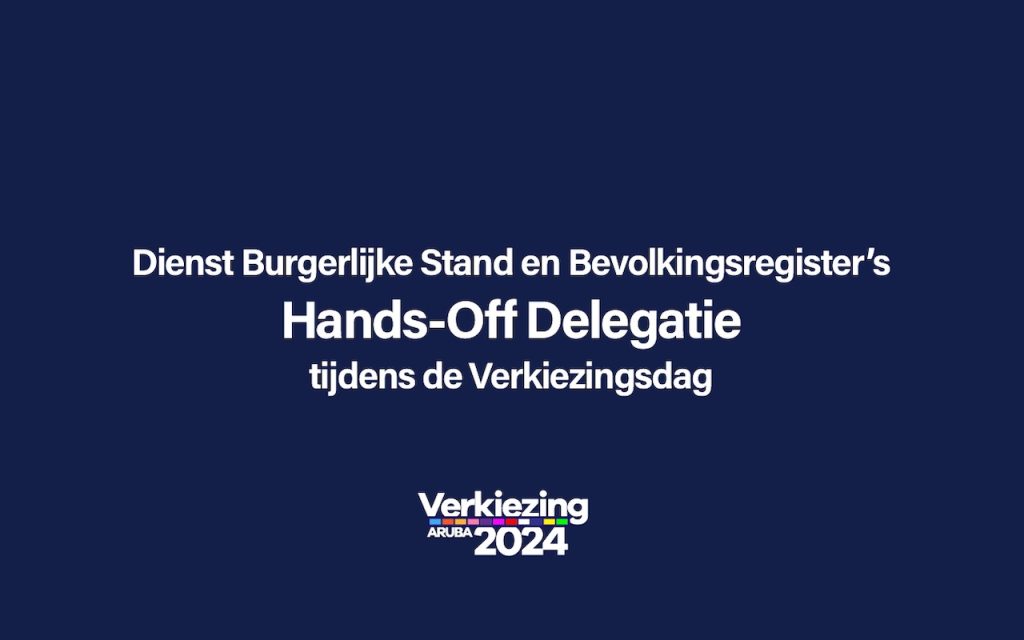
The Department of Civil Registration and Population Bureau (DBSB), responsible for managing the electoral process in Aruba, chose to employ a hands-off delegation strategy on Election Day at polling stations. While this approach increases the autonomy of polling station chairpersons and expedites decision-making, it also raises questions about the security and potential risks of such a method of operation during a crucial democratic event.
What is Hands-Off Delegation?
Hands-off delegation means entrusting tasks and responsibilities to individuals without intensive supervision. In the context of elections, this means that polling station chairmen and their teams operate independently without constant supervision from the central election authority.
This approach is based on trust in the competence and preparation of staff. It can lead to efficiency and quick decision-making, but the lack of oversight can create challenges when unexpected problems arise.
Why Does the DBSB Choose This Approach?
The hands-off strategy seems to stem from practical considerations and confidence. Election days involve numerous polling stations, each with its own dynamics. By giving autonomy to the teams on the ground, the DBSB can avoid micromanagement and focus on overall coordination.
Key reasons for this approach include:
- Decentralized Decision Making: Polling station chairmen can address local problems directly without waiting for approval from higher-ups.
- Efficient Use of Resources: Less supervisory personnel needed.
- Confidence in Training: Rely on the thorough preparation and training of election staff.
The Risks of a Hands-Off Approach.
While the benefits are clear, this strategy also carries risks, especially in a high-stakes environment such as election days:
- Errors in Assessment: Without supervision, decisions may be made on the spot that are not in line with the electoral law or guidelines.
- Inconsistency: Differences in practices between polling stations can lead to accusations of bias or procedural irregularities.
- Lack of Direct Supervision: Problems can go unnoticed until they have major consequences, such as ballot mismanagement or conflicts with voters.
- Public Perception: A hands-off approach can undermine public confidence in the electoral process if mistakes are made.
Risk management
Although full hands-off delegation seems risky, the DBSB has likely taken steps to mitigate these risks:
- Thorough Training: Ensure that all polling station personnel are fully aware of procedures and laws.
- Clear Communication Protocols: Set up a direct communication line for reporting problems or questions.
- Regular Monitoring or Sampling: Letting supervisors control without micromanaging.
- Emergency plans: Be prepared for quick interventions if a polling station experiences major problems.
Balance between Trust and Responsibility
While autonomy can empower staff at polling stations, it must be combined with mechanisms that ensure accountability and consistency. Trust in staff is essential, but blind faith can be risky in a sensitive process such as elections.
Conclusion
The hands-off delegation strategy of the Office of Civil Registration and Population Registry reflects a bold confidence in its staff and operational structure. While this approach can lead to a more efficient election process, it is not without risk. The success of this strategy depends on the quality of training, clear communication and the ability to quickly address challenges. When managed well, it can become a model for efficient election management; when it fails, it can provoke criticism and undermine confidence in the democratic process.

